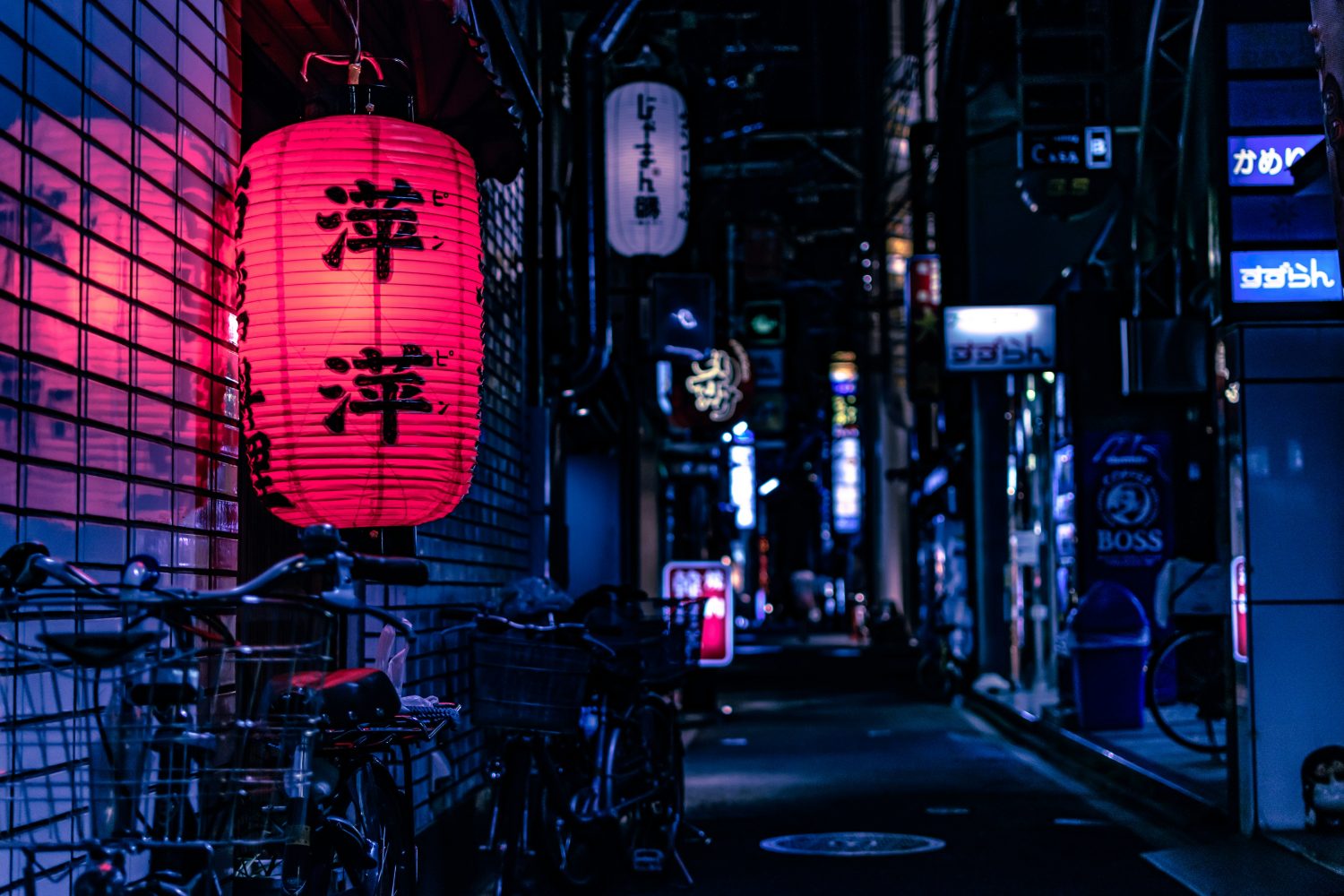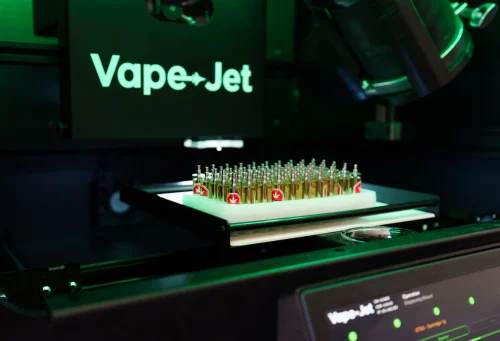The relationship with cannabis in Japan is one of deep history, cultural caution, and modern transformation. Once a sacred agricultural crop and symbol of purity, hemp (asa) was integral to Japanese tradition for thousands of years. Today, cannabis sits at the center of one of Asia’s most conservative drug policies.
While many countries are decriminalizing or legalizing cannabis, Japan remains firm in its prohibition. Yet the conversation is shifting. In recent years, Japan has quietly moved toward medical cannabis reform, a regulated CBD market, and renewed debate about hemp’s economic role.
This is the full story of cannabis in Japan: past, present, and what’s next.
Cannabis in Japan: The Deep Roots of Hemp in Japanese History
Long before the Cannabis Control Law, hemp was a cornerstone of Japanese agriculture and spirituality. Archaeological records show hemp fibers dating back to the Jōmon period, over 10,000 years ago. Farmers grew asa for rope, textiles, clothing, and even religious ceremonies.
In Shinto culture, hemp symbolized purity. Priests used hemp ropes (shimenawa) in rituals to ward off evil spirits, and the Emperor’s garments were traditionally woven from hemp fiber. For centuries, this plant was a normal part of daily life.
That changed in 1948, when the United States occupied Japan after World War II and pressured the new government to adopt stricter drug control laws. The Cannabis Control Law (CCL) was enacted, effectively criminalizing cannabis while allowing limited hemp cultivation under license. This marked the beginning of cannabis in Japan’s modern prohibition era, which still defines the national approach today.
The Cannabis Control Law: A Strict Federal Framework
The Cannabis Control Law remains the primary legislation governing cannabis in Japan. It prohibits the cultivation, possession, sale, and import or export of cannabis without government authorization.
Under the current law:
- Possession or transfer of cannabis can result in up to 5 years in prison
- Cultivation, import, or export without a license carries 7 to 10 years in prison and heavy fines
- Use of cannabis, which was not explicitly criminalized before, became illegal in 2024 following new amendments
In late 2024, the Japanese government passed a major revision to close the long-standing “use loophole.” Now, anyone caught consuming cannabis faces up to seven years in prison, aligning Japan’s law with its already harsh penalties for possession and cultivation.
These changes reinforce zero-tolerance for cannabis in Japan, showing that legalization or decriminalization is not on the near horizon.
The New Medical Cannabis Pathway
The same 2024 reform that criminalized use also opened a small but historic door: the legal use of cannabis-derived medicines.
For the first time, Japan’s Ministry of Health, Labour and Welfare recognized that certain cannabinoid-based pharmaceuticals could offer medical benefits. This reform for cannabis in Japan allows regulated imports and domestic clinical trials involving cannabis-derived drugs, particularly for epilepsy and chronic conditions.
Japan’s approach is pharmaceutical-only. Patients will not have access to cannabis flower or oils like in North America or Europe. Instead, specific cannabinoid compounds such as Epidiolex (a CBD-based epilepsy treatment) are now eligible for approval under the Pharmaceuticals and Medical Devices Act.
This marks Japan’s first legal acknowledgment that cannabis has medical value. It is a small but meaningful step forward in a country long known for rigid drug policy.
Zero-Tolerance for Cannabis in Japan
Despite these medical developments, Japan’s social attitude toward cannabis remains overwhelmingly negative. In a nation where conformity and reputation are deeply ingrained, being associated with cannabis can destroy careers, reputations, and family relationships.
Public figures, athletes, and entertainers have been publicly shamed and blacklisted for even minor cannabis-related infractions. Police often publicize arrests, and media coverage reinforces the stigma.
The government’s message is clear: cannabis use equals criminal behavior. Public service announcements and anti-drug campaigns continue to portray marijuana as a dangerous substance with severe social consequences.
Still, a slow cultural shift for cannabis in Japan is happening. Younger generations, especially those exposed to global media and travel, are questioning the logic of strict prohibition, particularly as more countries legalize cannabis without social collapse. Japan’s growing generational divide is shaping the tone of future policy debates.
The Status of CBD and Hemp in Japan
CBD, or cannabidiol, is legal in Japan but under some of the strictest rules in the world.
Japanese law draws a sharp distinction between CBD and THC. CBD products must be derived only from the stalks and seeds of hemp plants and must contain no detectable THC. Even trace amounts can make a product illegal. Reminder, cannabis in Japan is not allowed.
This zero-tolerance approach for cannabis in Japan and no THC has forced Japanese CBD companies to rely on imports from Europe and the United States, where producers can guarantee ultra-purified CBD isolates. Domestic hemp cultivation remains limited due to licensing barriers and strict strain controls.
As of 2025, regulators are considering even tighter limits, proposing a THC cap as low as 0.001%. These measures, meant to prevent abuse, could severely impact Japan’s growing CBD market, which was valued at nearly ¥25 billion ($160 million USD) in 2023.
Still, CBD has become Japan’s one legal bridge between prohibition and progress. Wellness consumers and health professionals alike are embracing its non-intoxicating benefits for sleep, anxiety, and pain, paving the way for broader acceptance of cannabinoid-based therapy.
Enforcement, Arrests, and Public Consequences
Japan enforces its cannabis laws with precision and consistency. According to the National Police Agency, cannabis-related arrests have doubled over the past decade. In 2020 alone, there were more than 5,000 cannabis cases, many involving simple possession.
Penalties are harsh, but the social repercussions are often worse. Public disclosure of arrests can ruin careers overnight, especially for celebrities, corporate workers, or students. Many companies enforce strict disciplinary policies against any drug use, leading to firings and expulsions even before formal charges.
Foreigners living or traveling in Japan are not exempt. Tourists and residents caught with even small amounts of cannabis face detention, deportation, and permanent bans from reentry.
These severe penalties reflect Japan’s belief that deterrence maintains order. Critics argue it only drives cannabis use further underground and stigmatizes users instead of addressing public health.
Public Opinion and the Push for Reform
Surveys show that Japanese society remains largely opposed to recreational cannabis, but attitudes are slowly softening. Among young adults, support for medical cannabis legalization has surpassed 60%, and many believe criminal penalties for personal use are excessive.
This generational shift aligns with broader global trends. As neighboring countries like Thailand and South Korea explore medical cannabis frameworks, Japan faces growing pressure to modernize its approach not only for public health reasons but also to remain competitive in the global cannabinoid industry.
Lawmakers are beginning to discuss these issues more openly. The 2024 amendment represents a compromise: stricter penalties for use but a legal foundation for medical research and pharmaceutical development. It is a cautious step toward modernization that reflects Japan’s desire to balance international expectations with domestic conservatism.
The Economic Potential of Japan’s Hemp and CBD Sectors
While Japan’s adult-use market is nonexistent, the industrial hemp and CBD sectors hold significant potential. Hemp cultivation, though limited, is deeply rooted in the country’s history, and prefectures like Tochigi continue to produce traditional hemp under government license.
Experts estimate that if regulations loosened, Japan could develop a domestic hemp industry worth over ¥100 billion ($650 million USD) annually, supporting textiles, wellness products, and sustainable materials. The country’s focus on quality manufacturing and export standards could make it a global leader in premium hemp and CBD products.
International investors are watching closely. Companies in Canada, Israel, and the United States see Japan as a long-term opportunity: a stable, affluent market with strong pharmaceutical infrastructure. But until THC limits and licensing requirements ease, large-scale investment will remain limited.
Cultural Identity, Religion, and Cannabis Stigma
Understanding Japan’s relationship with cannabis requires understanding its culture of respect, order, and purity. The country’s “no drugs” mindset extends beyond law. It is cultural.
Whereas Western societies may separate cannabis from “hard drugs,” Japan views all narcotics, including marijuana, as social toxins. This perspective stems from postwar propaganda and a national emphasis on discipline and harmony.
Yet paradoxically, hemp remains embedded in Shinto tradition and ancient craftsmanship. From priests’ garments to festival decorations, hemp symbolizes purity and renewal. This historical duality, reverence for hemp and rejection of cannabis, captures Japan’s current tension: a nation trying to reconcile ancient roots with modern science.
The Future of Cannabis in Japan
Japan stands at a crossroads. It can continue enforcing one of the world’s toughest anti-cannabis regimes or take a measured step toward modernization. The 2024 legislative reform shows that change is possible, but the pace will be deliberate and tightly controlled.
The most realistic near-term future includes continued expansion of medical cannabis research, tighter CBD regulation, and gradual increases in public acceptance.
Full recreational legalization remains highly unlikely in the foreseeable future, but Japan’s growing economic and scientific interest in cannabinoids will keep the conversation alive.
FAQs: Cannabis in Japan (2025 Update)
Is cannabis legal in Japan?
No. Possession, cultivation, and use are all illegal. The law was tightened in 2024 to criminalize use explicitly.
Can I use CBD in Japan?
Yes, but only if it is THC-free and extracted from hemp stalks or seeds. Products containing even trace amounts of THC are banned.
Is medical marijuana legal?
Partially. Certain pharmaceutical cannabis-derived products are now legal under medical supervision, but flower and oils remain banned.
Can foreigners bring cannabis to Japan?
No. Bringing cannabis or CBD products into Japan, even if legally purchased elsewhere, can result in arrest, detention, or deportation.
Will Japan ever legalize weed?
Unlikely in the short term. While attitudes are changing, cultural stigma and strict federal laws keep full legalization off the horizon.
A Nation Between Tradition and Transformation
Cannabis in Japan is a story of contrasts between ancient reverence and modern prohibition, tradition and science, purity and punishment.
While the rest of the world races toward legalization, Japan’s approach remains deeply cautious. But beneath that restraint lies an unmistakable shift: the quiet rise of medical research, the growth of a regulated CBD sector, and a generation increasingly aware that global cannabis reform is inevitable.
Japan may never mirror the West’s free-market approach, but its move toward evidence-based medicine and controlled innovation could define a uniquely Japanese path, one that blends discipline with discovery and tradition with progress.







